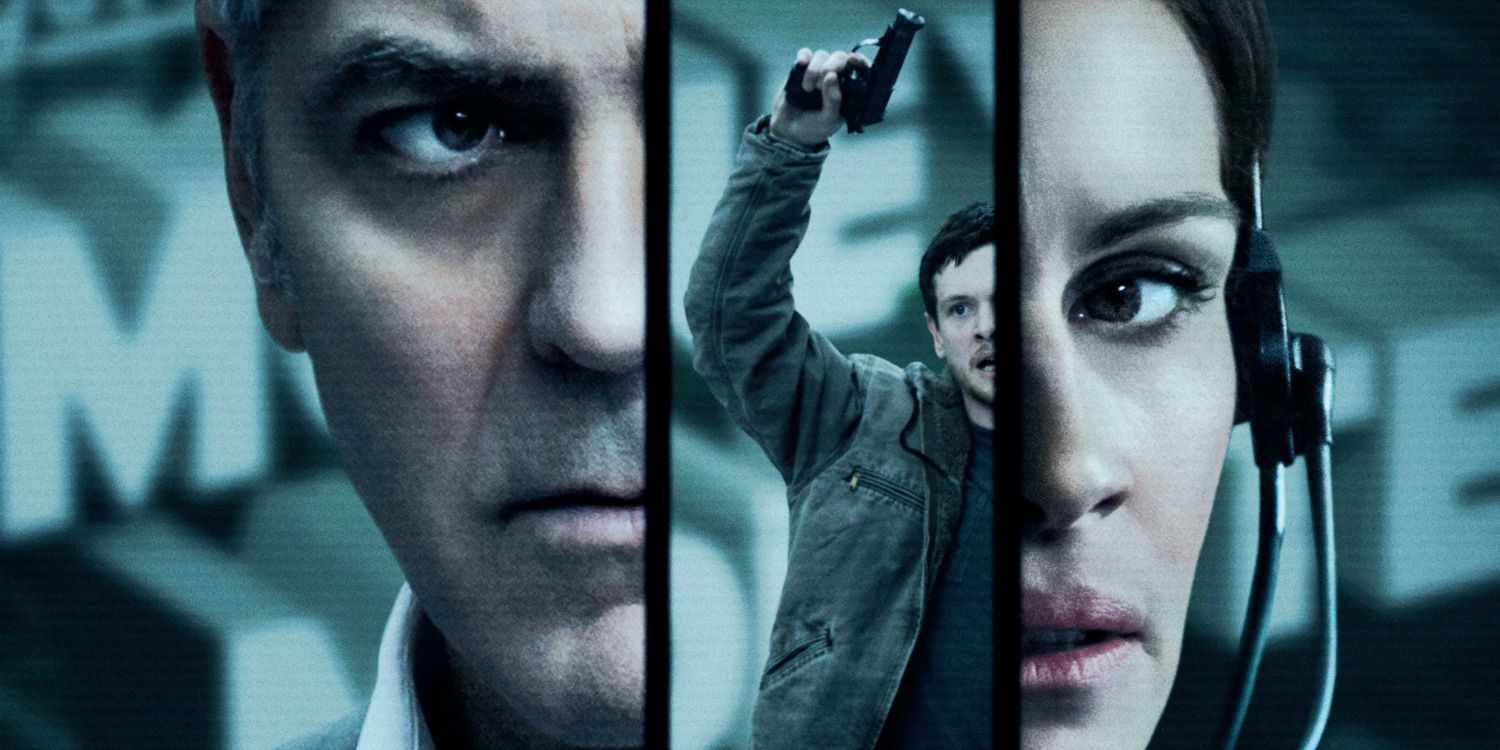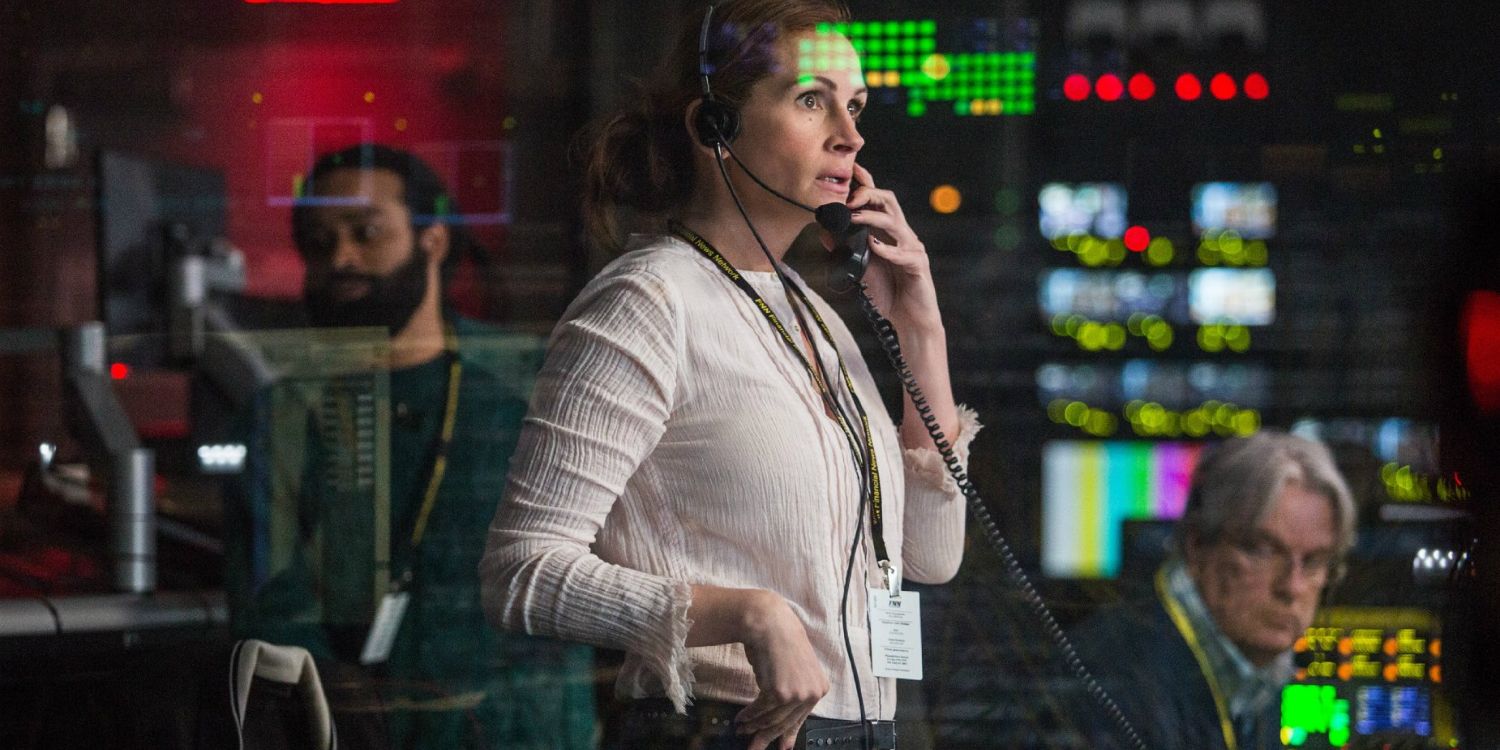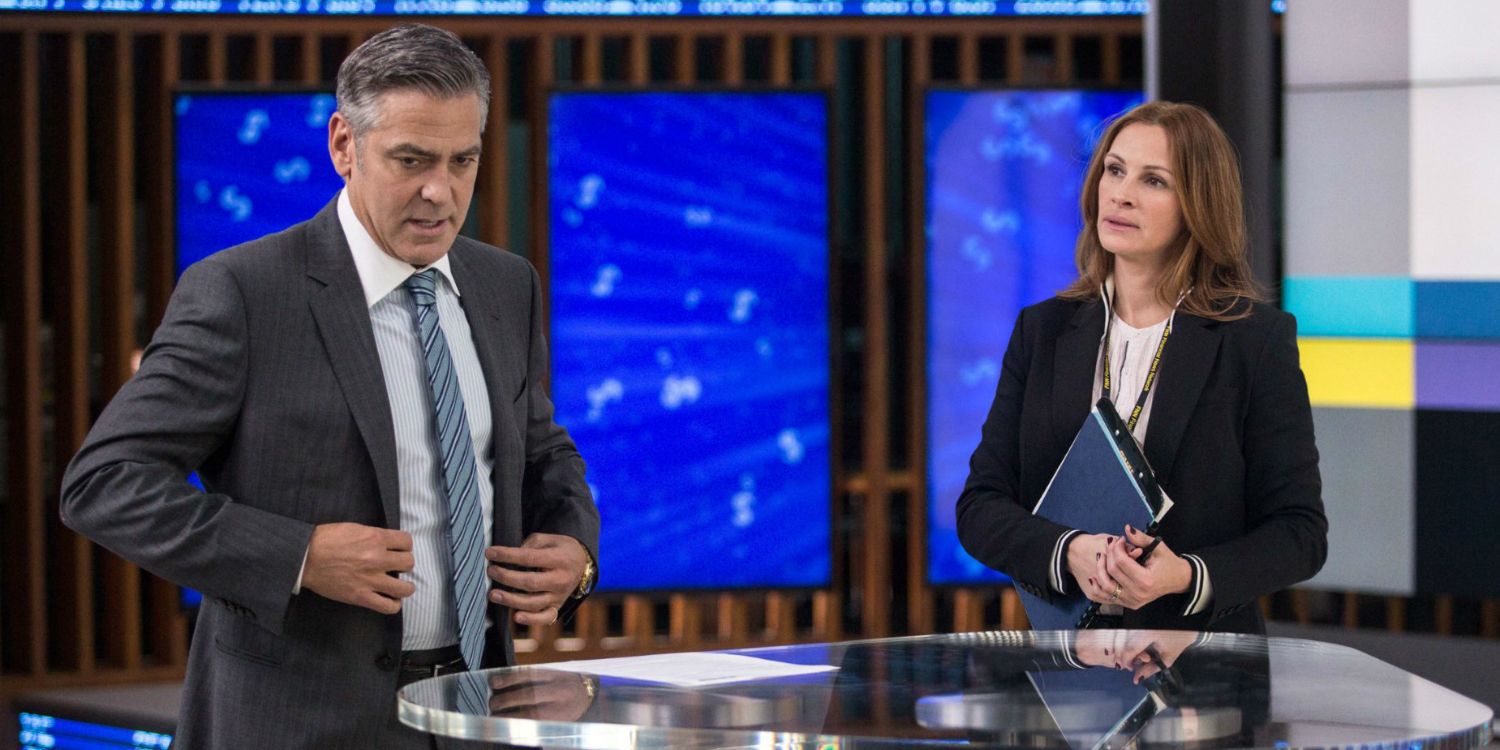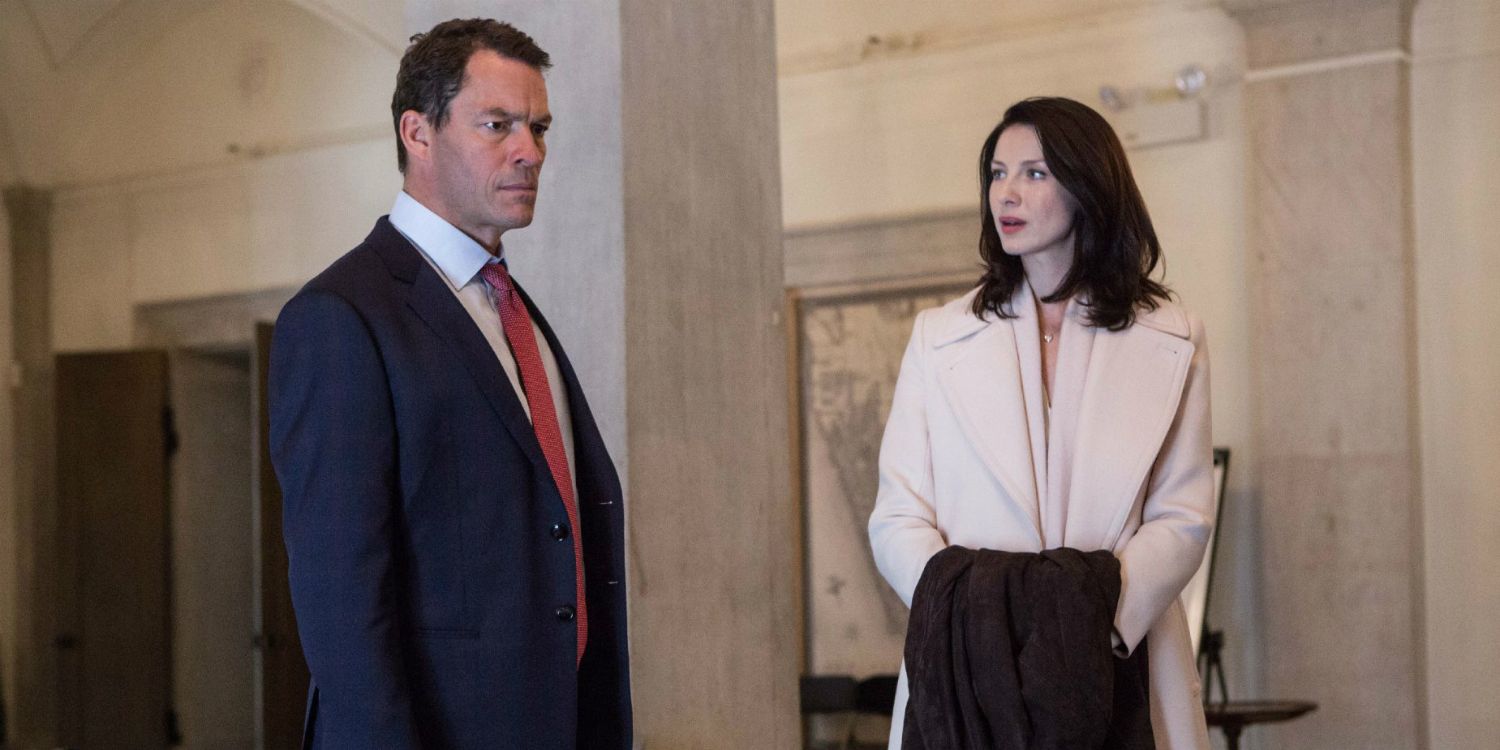Money Monster is a well-directed and well-acted dramatic thriller weighed down by heavy-handed social commentary and implausible plot beats.
Money Monster revolves around one Lee Gates (George Clooney), the host of Money Monster: a highly popular financial network TV show and "infotainment" program where Lee provides advice to his viewers on how they can get rich by investing in stocks and "conning" the con artists of Wall Street. When Lee makes the wrong call and tells those who are watching from home to buy stock from the finance company IBIS - only for IBIS' stock to inexplicably plummet far enough to result in a multi-hundred million dollar loss for the company - he thereafter finds himself taken hostage live on-air by Kyle Budwell (Jack O'Connell): a disillusioned Money Monster viewer who invested (and lost) $60,000 by following Lee's advice.
Lee, along with his top-notch Money Monster production crew and dedicated producer Patty Fenn (Julia Roberts), must then work in real-time to keep himself alive by fulfilling Kyle's demands: to uncover the truth about what caused IBIS' stock to rapidly drop $800 million in value in the first place. However, as Lee and Patty race against the clock to prevent Kyle from killing anyone and carry out their "investigation" of what really happened, it starts to become clearer that the truth behind IBIS' financial loss is more complicated than any of them could have imagined.
Money Monster is a drama/thriller that very much taps into the zeitgeist of 2016, with its distrust of Wall Street, the mainstream media, and the U.S. corporate sector in general. The movie also very much harkens back to such landmark 1970s titles as Dog Day Afternoon and Network in particular, in the way that it combines satire and social commentary with terse narrative-driven filmmaking. Money Monster ends up feeling kitschy for the same reasons, as this storytelling approach makes the film's messages and observations come off more as being preachy and ham-fisted by modern film standards - even as Money Monster takes steps to paint its characters and situations in shades of grey, rather than black and white.
The Money Monster screenplay credited to Alan DiFore (co-creator of The Bridge), Jim Kouf (co-creator of Grimm) and Jamie Linden (10 Years) is something of a mixed bag, taken as a whole. The first half of the film's narrative starts to develop Lee Gates - a not-so-subtle caricature of real-life "financial whiz" TV personalities like Jim Cramer - as being an intriguing and complicated protagonist, while at the same time juxtaposing him with Kyle: a working-class type who is gradually shown to be less of a mere victim (and thus, more interesting) than he appears to be at first. However, those character studies are undermined by the movie's second half, as Money Monster devolves into being more of an implausible thriller where the characters serve as little more than mouthpieces to deliver the film's overt social/political commentary.
On the other hand, Money Monster is a tightly-constructed dramatic thriller, thanks to the efforts of director Jodie Foster and her collaborators behind the camera. Foster and director of photography Matthew Libatique (Black Swan, Straight Outta Compton) are effective in their efforts to keep the film feeling claustrophobic in terms of its visual style, at the same time that they provide more subtle social commentary with recurring shots and cutaways to the various people who are watching the Money Monster TV show spectacle unfold within the film itself. Money Monster lacks the stylistic flourishes that have distinguished similarly socially-conscious genre movies from the past decade (Inside Man, which Foster co-starred in, being one example that comes to mind), but the film's economic design allows it to maintain a leaner running time and better pacing than it might have achieved otherwise.
Money Monster strives to offset its more suspenseful and tense sequences by having comedic moments sprinkled through its three-act narrative, but the movie struggles to blend darkly comical satire with politically-charged drama and the resulting effect is often tonal whiplash. Clooney and Roberts help to better sell these dramatic and humorous plot beats alike with their respective performances. The Lee Gates character goes on a predictable, but still worthwhile, journey of personal growth here, as Clooney aptly handles the scenes where Lee is arrogant and charmingly sleazy, as well as his moments of vulnerability when he realizes that he really isn't "The Smartest Guy in the Room" after all. Roberts' character Patty Fenn is shown to be the real brains behind the Money Monster TV show, providing Roberts the chance to create a portrait of someone who's confident and capable, but lacks the personality and salesmanship of her "boss".
Jack O'Connell (Unbroken) delivers a fine performance as Kyle Budwell (debates about his East Coast accent aside) and some of Money Monster's strongest scenes are the ones where the film shows that both he and Lee are less in-control (and, to be frank, pathetic) than either of them fancies themselves to be. However, as indicated earlier, Kyle is reduced to being more of a plot device than anything else through the film's second half, as the narrative's focus instead shifts to IBIS' Chief Communications Officer Diane Lester and CEO Walt Camby, as played by Caitriona Balfe (Outlander) and Dominic West (The Affair), respectively. While Balfe and West are both solid in their roles, their Money Monster characters are not compelling enough to justify the shift away from the conflict between Lee, Patty, and Kyle. Money Monster also fails to provide its talented supporting cast (which includes Breaking Bad's Giancarlo Esposito) with much to do other than play stock supporting characters in the story (the seasoned police officer, the comically put-upon assistant, and so forth).
Money Monster is a well-directed and well-acted dramatic thriller weighed down by heavy-handed social commentary and implausible plot beats. The movie admirably makes an effort to avoid pointing the finger of blame for the present-day social/political problems that it calls attention to at any single group of people, but Money Monster prioritizes blunt "messaging" over compelling storytelling (wherein the messages arise more organically from the narrative), to its detriment. Filmgoers in the mood for some low-key counter-programming to the batch of big-budget tentpoles that are now playing in theaters may find this comparatively grounded (and intellectual) thriller to be a refreshing change of pace - and thus, may be more forgiving of its flaws. Unfortunately, like its protagonist, Money Monster isn't as savvy or ahead of the curve as it believes itself to be.
TRAILER
Money Monster is now playing in U.S. theaters nationwide. It is 98 minutes long and is Rated R for language throughout, some sensuality and brief violence.
Let us know what you thought of the film in the comments section.





